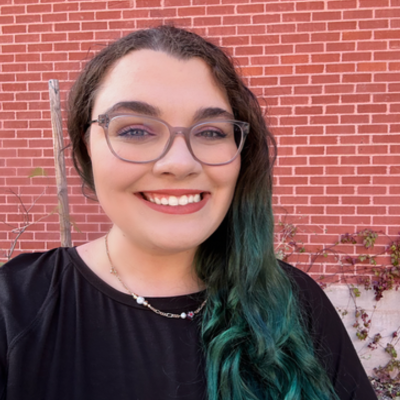10 Changing My Mind
Sarah Randolph
As a first-generation college student from California, coming to the UA felt like a giant leap into the unknown. I felt anxious and uncertain when I arrived on campus, not knowing exactly what to expect from my higher education experience. The only thing I knew was that I wanted the financial sacrifice and personal effort to be worthwhile. I wanted to gain new experiences, take advantage of opportunities, and graduate with a degree that would lead to a job that would make all the effort feel worth it.
Thus, I came to the UA as a pre-nursing student. Nursing pays well — in nursing, I could see a clear path between my studies and a job right after graduation. Seeing this clear, straight path between my degree and a job felt important. I couldn’t see the value of a college degree that did not lead to a specific career. However, it didn’t take me very long to realize that nursing was not a good choice for me. I was getting good grades in my classes, but I didn’t find those pre-nursing classes interesting. They weren’t easy classes, either. Physiology took a lot of time and effort, which was hard to give when I wasn’t interested in the content. I started to grow anxious: the more I studied nursing, the more I realized it wasn’t the right field for me.
As time passed I grew more desperate to study something besides nursing, but the thought of changing my major scared me. What would I change it to? Where would a different major take me professionally? There was a lot I didn’t yet understand about the skills I could learn at the UA and how different majors could lead to fantastic careers. I couldn’t understand the purpose of classes that didn’t point directly toward a specific job like nursing or teaching. I was on financial aid and afraid to waste any time or credits on classes that might not provide me with the skills I would need to get a good job.
I didn’t realize it at the time, but I was already enrolled in classes that were teaching me valuable skills. To meet my degree requirements, I had to enroll in general education courses like AFAS160, The Africana Experience, RCSC 150, Money, Consumers, and the Family, and RELI 227, Religion and Film. These classes gave me my first insight into what other majors and fields look like and taught me skills I would need in later classes. For example, I learned critical thinking skills, how to discuss ideas out loud in class, and how to use the library research databases. In ANTH 160, Traditions and Cultures in World Archaeology I wrote my first semester-long research essay. I conducted library research, drafted an outline, prepared an annotated bibliography, and presented drafts for revision before submitting my final draft. Psychology 101 introduced me to the concept of psychological health and wellness, and how researchers study human minds and behaviors. As I took these classes, I asked myself: What do I like learning about and doing? What do I not find interesting and what do I not like doing? What do I want to learn more about? The Gen Ed classes I took helped me develop academic skills, discover new options, and identify my interests. I learned that I really enjoyed the research projects in my classes, and that the psychology projects interested me much more than other projects I had done. My Gen Ed courses allowed me to explore topics I would not have chosen on my own. From here I was able to find a major that matched my strengths and interests.
The decision to change my major from nursing to psychology felt monumental. Although I knew I enjoyed studying psychology, the field was new to me and seemed less practical than nursing. The same psychology classes I was so interested in taught me about the concept of imposter syndrome and helped me recognize it in myself — the sense that I, a first-generation student, didn’t belong in these psychology classes with the other students despite earning A grades in those classes. Also, I was concerned about what my family would say about changing from nursing to a field of study where my future career wasn’t quite so clear. I gathered my courage and spoke to them about my unhappiness in nursing and my interest in psychology. Through these hard discussions, I realized how fortunate I am: my family supported my decision to change directions, a boost that gave me the courage to step into the unknown. I met with an academic advisor in the Psychology department and chose to pursue a Bachelor of Science in Psychological Science.
My Gen Ed classes initially seemed like an assortment of unrelated classes, but I now see how valuable they were for my academic and professional growth. They introduced me to new topics I would have never thought to explore. They improved my library research skills, helped me develop strong writing skills, and honed my oral presentations. These skills were essential in my upper-division psychology classes. Without the skills I learned in my Gen Eds, I would have been less likely to obtain my research position in psychology clinics as an upper-division student, or my paid student employment that requires creativity, confidence, research, writing, and speaking skills.
By the time I was taking upper-division classes in my major, I felt confident and ready. My Gen Ed classes had helped me find my major and develop the foundation I needed to pursue my own research in imposter syndrome. I have now just been accepted to graduate school. My goal is to continue studying the development of support mechanisms on college campuses to help other students like me combat imposter syndrome and have the courage to change their mind.


